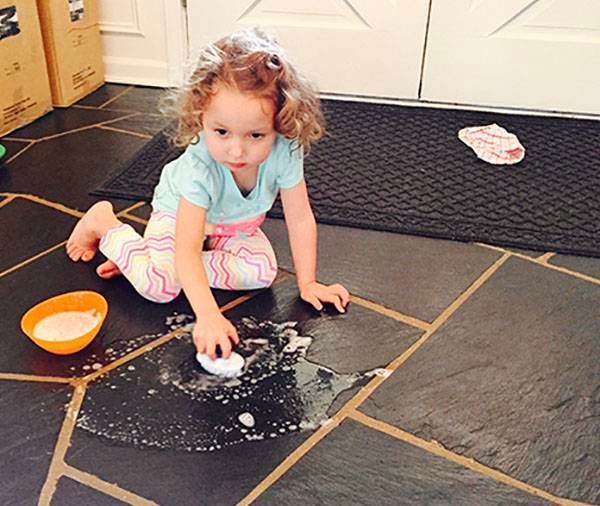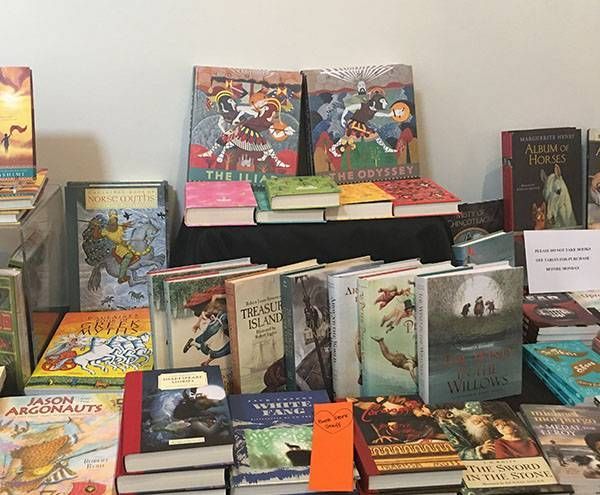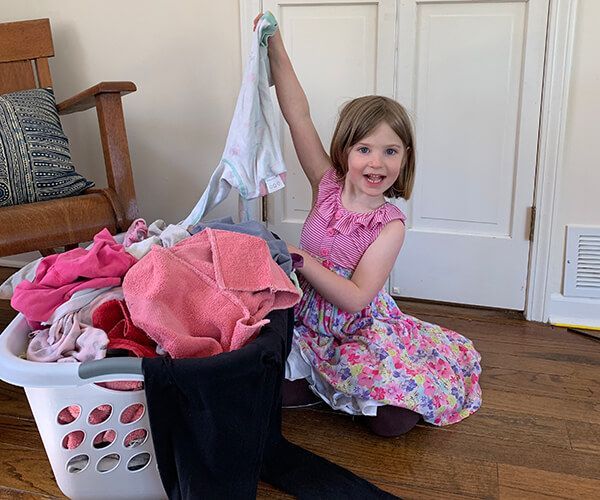
“When my 18-month-old daughter walks into that Montessori classroom, she seems to stretch up taller,” an astonished Forest Bluff parent once told me.
For sure, many children do exhibit pride and self-confidence when they are supported to be appropriately independent, from both home and school. We talk a lot about how and why Montessori’s approach has this effect at school. But what about the support from home? As your family makes the transition from summer to fall, and returns to the school routine, there are important ways to support your children to get the most from their educations (and from this stage of life).
I’ll call this approach RAISIN so you can remember the main points: Routine, Activity, Independent self-care, Sleep, Intellectual curiosity, and Nutrition. We’re “RAISIN” these children together! Let’s explore each of these points:
Routine
We recommend providing some quiet downtime after school each day, and a period of physical activity: reading and playing outside. Afterwards, invite your children to participate in simple household tasks such as preparing meals, cleaning, laundry, or any other contributing role and preparing for the next day, before dinner. Every day does not have to be the same, but having a general routine supports us all, and routine is especially important for young children who need reliable consistency to develop a sense of order and an organized mind.
Activity
More than ever, many children are being restricted from moving and are living fairly sedentary lives. This is unhealthy on multiple fronts. Being active—crawling, pulling up, walking, running, climbing, tumbling, rolling—in playful ways should be part of every day. Every time I see a child in a wagon or a stroller when they could be walking, it gives me a pang! Of course, there are times when doing this is practical, but as often as possible, encourage your children to do the walking, pushing, pulling, and carrying. Traveling through an airport is a great time to let everyone in the family bring their own belongings along. Recently I saw a father with three children, each pulling their own rolling suitcase and carrying a tiny backpack. The youngest child was probably about three years old. Smart, smart man! Those children looked happy and capable.

Besides playing freely, activity can be in everything your child does around the house: raking leaves, sweeping the patio, watering plants, helping you organize the garage or basement, cleaning a cupboard in the kitchen, scrubbing the tile floor—you name it! These activities are actually fun to children, as long as they get to do it with you and you’re cheerful about being together. Short and sweet works well.
Independent Self-Care
It is natural for children to want to do things for themselves. This is where they get their self-esteem from, so don’t miss any opportunities to support them to do things for themselves. This can mean putting themselves to sleep at night after you give your last snuggle and close their bedroom door; it can mean setting up the kitchen so that they can reach their own dishes and set their own low table for meals; it can mean supplying child-sized cooking utensils so they can prepare meals alongside you every day; it can mean setting up accessible spaces where they can keep their own shoes and coats, and providing a basket with two choices of outfits for the following day so they can dress themselves on their own. We tend to do entirely too much for children, treating them like dolls to dress, feed, wipe and prop up. But this gives them the messages that they are incapable! Although they are born without these abilities, our job as parents is to show them how to care for themselves as soon as they can physically do these actions. I believe that nothing could be more joyful than sharing your children’s growing independence with them. It is so much fun!
Sleep
The importance of a good night’s sleep is finally gaining attention in the medical and science literature. This is not only critical for mood, the immune system and physical growth, but for mental development as well. It is crucial that we help children to develop a reliable sleep schedule and to get adequate sleep. Do everything you can to prioritize this, especially as you transition from summer life to the school routine. This means slowing the family down after dinner and getting everyone into bed early. Maintaining an evening reading habit helps this tremendously!
Intellectual Curiosity
Fostering intellectual curiosity can be enjoyable and meaningful for your whole family. You don’t have to be “brainy” to have fun learning new things or to take an interest in the world around you. This mainly means modeling for your children and conversing with them, observing your surroundings and wondering aloud. You might study an instrument, read a bit of history, find out about an insect, plant or animal, look over the atlas together, and read books—lots of books!

Reading cannot be overestimated as the primary mode of educating oneself about the world and developing a habit of intellectual curiosity, empathy for others, and imagination for creative thought. Read aloud to your children until they can read to themselves—every single day—and then keep reading aloud to them! Reading is our Forest Bluff School “homework” for a reason: it’s the best way to help your children build their minds and interests.
Remember the days of sitting around the dinner table talking (without phones, screens, or distractions)? We highly recommend cultivating this habit in your family. On weeknights at least, this custom meets many criteria at once!
Nutrition
The more I learn about how food affects our health, mood, energy, and metabolic system, the happier I am that my husband and I gave our children only healthy eating choices when they were young. Breakfast, lunch, dinner, and snacks consisted of vegetables, clean meat, either rice, beans, wheat bread or potatoes, and fruit. We simply didn’t have junk food or high sugar foods around. We didn’t bring it into the house. When we went out, we gave them choices from a menu, but we narrowed the choices to healthy, balanced meals. It did not feel mean or strict because we knew this was the way to give our children the best start in life—both physically and in building habits and tastes. We ate the same things in their presence, and we chose things we loved to eat. (For a sweet treat, ice cream was on our list, of course!)
The same was true when it came to preparing our children for the day and giving them choices for making their lunches. True fact: children are MUCH more likely to eat their lunches at school if they make them themselves, and they will eat just about anything when they are at school! This makes it the perfect place to supply only healthy food!
Having been a teacher for years, I observed how what children put into their bodies affects their energy level and, especially, their ability to concentrate and learn. It is worthwhile to learn some basics about nutrition when you are a parent, so that you can pass the basics on to your children. Food choices and healthy eating need not be negative. Examine your own attitudes about food so you can pass on positive messages about nourishing one’s body to feel great throughout the day. This is your chance: while your children are young.
Final Thoughts
As you return to school this fall, think of these practices, and please ask your Forest Bluff Directors for help or ideas in
any of these categories. They are so knowledgeable and have so much personal experience with families. We’re here to help you in the most important task of your life: “RAISIN” your children with joy!


